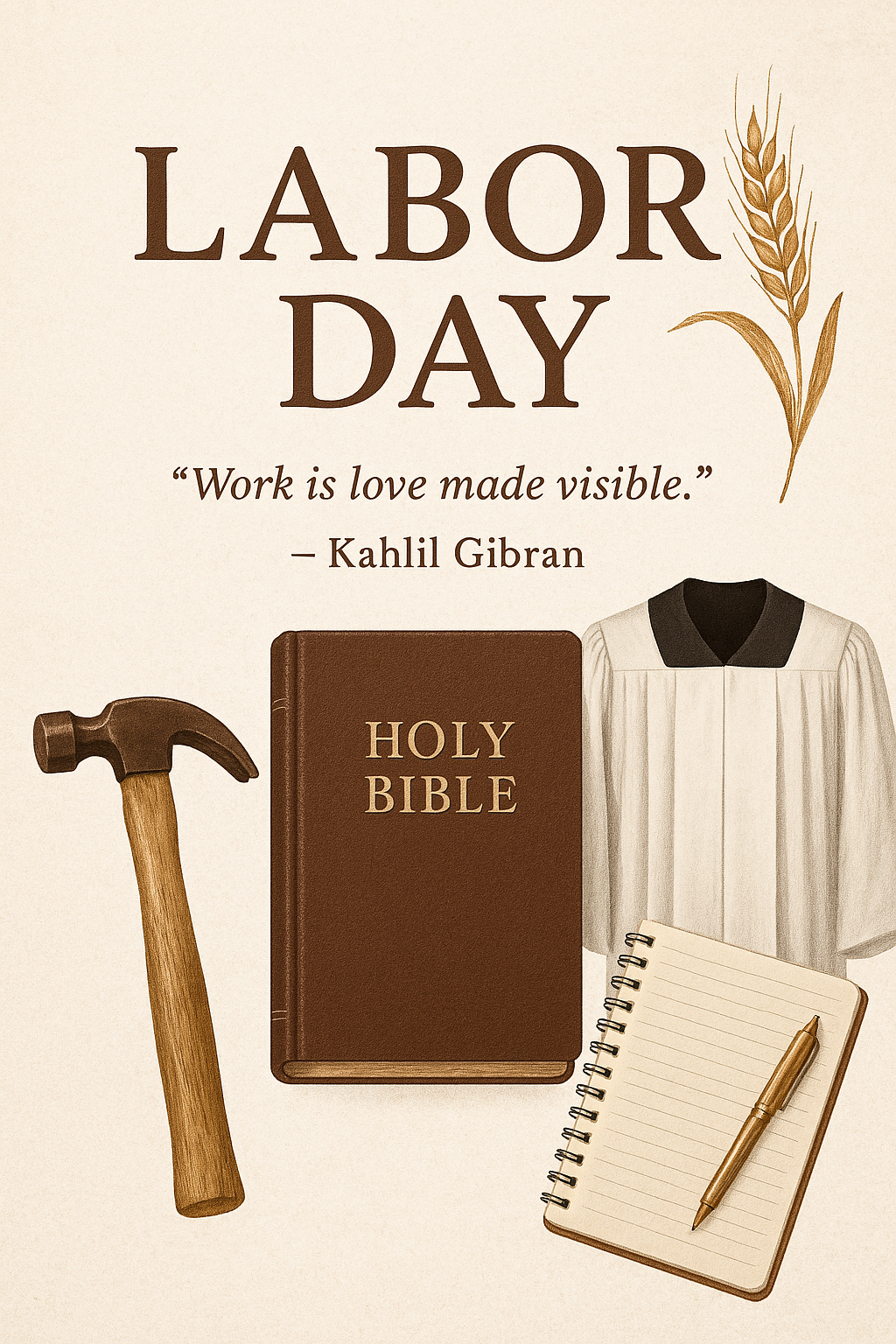Labor Day isn’t just a long weekend. It’s a mirror we hold up to the calluses on our hands and the hopes in our hearts. At IvyRobes, we think about the people behind the work—the ushers who arrive early, the choir that holds the last note, the teachers who stay late, the clergy who carry stories no one else hears. This day invites all of us to honor their labor and the love behind it.
The road to Labor Day
Labor Day in the United States grew out of a tumultuous chapter of strikes, marches, and relentless organizing in the late 19th century. In 1894, amid national unrest, Congress recognized the first Monday in September as a federal holiday to honor workers and their contributions to the nation’s strength and well‑being.
Across the Atlantic and around the world, May 1—International Workers’ Day—traces its roots to the 1886 Haymarket affair in Chicago, a turning point that intertwined labor rights with public conscience. Different dates, same heartbeat: a public promise to remember the people whose work builds our shared life.
Faith traditions on labor and rest
Religious communities have long held a vocabulary for the dignity of work—and the holiness of rest.
- Sabbath rest: The Jewish Sabbath enshrines a weekly cease‑from‑labor, reminding us that worth doesn’t come from productivity alone. It’s a rhythm of release, trust, and return.
- Catholic social teaching: In 1891, Rerum Novarum affirmed the rights of workers, the moral weight of just wages, and the duty of employers and society to protect the vulnerable. In 1955, the Feast of St. Joseph the Worker (May 1) highlighted the sanctity of ordinary labor and the quiet pride of craftsmanship.
- Protestant witness: Many churches observe “Labor Sunday” on the weekend before Labor Day, preaching on justice, vocation, and neighbor‑love. Some congregations include prayers for those who are unemployed, underpaid, or overburdened.
- Orthodox and other traditions: From harvest blessings to prayers for artisans and seafarers, many communities keep rituals that dignify hands-on work and the people who do it.
“Work is love made visible.” — Kahlil Gibran
Small stories that linger
- The carpenter’s bench: A Midwestern pastor once invited congregants to place a simple tool on the altar—a carpenter’s pencil, a nurse’s badge reel, a bus pass. During the prayers, the congregation blessed the tools, but what stayed was the silence when a retired congregant placed empty hands on the rail, honoring seasons when our work changes shape—or pauses entirely.
- The choir robe hem: A choir director told the story of mending a frayed hem minutes before a funeral. “It wasn’t just fabric,” she said. “It was a promise to hold someone’s grief with care.” Sometimes the smallest unseen fix is the truest labor of love.
- The second paycheck: A deacon who worked nights at a warehouse called his ministry “my second paycheck.” Not money—meaning. On Labor Day weekend, he shared how both jobs taught patience, perseverance, and the courage to keep showing up.
These aren’t grand gestures. They’re the kind of threads that hold a community together.
Traditions for Labor Day weekend worship
- Prayers of the people: Include petitions for workers in precarious jobs, caregivers, students, union organizers, small business owners, artisans, and those seeking employment.
- Blessing of hands and tools: Invite people to extend their hands—or bring a symbolic tool, notebook, or key—to bless the work they carry into the week.
- Readings and reflections: Pair sacred texts on justice and Sabbath with reflections on vocation: not just what we do, but who we’re becoming as we do it.
- Songs that breathe: Choose music that honors rest, perseverance, and hope. Let the congregation breathe between verses—a rest is part of the music.
- Hospitality with intention: Offer a simple coffee or picnic outside. Share stories of “first jobs” or “hardest days” to humanize the labor behind every smile.
Thoughtful ways to honor the workers among you
- Spoken gratitude: Name ministries and vocations aloud—custodians, tech teams, caregivers, teachers, gig workers, elders whose wisdom guides the rest of us.
- Notes of thanks: Invite congregants to write brief, specific thank‑you notes to someone whose work often goes unnoticed.
- Learning moments: Host a short forum on fair labor, rest, and spiritual burnout. Make space for those carrying multiple jobs or invisible caregiving loads.
- Acts of mercy: Organize a grocery card drive, childcare swap, or ride‑share list for those commuting long distances to work.
- Ritual keepsakes: Share a simple printed blessing or prayer that can tuck into a wallet, backpack, or locker as a quiet companion through the week.
A closing blessing
May your hands remember they were made for good work and gentle touch. May your rest be real, unhurried, and guilt‑free. May your community see what you carry—and help you set it down. And may every stitch, note, lesson, ledger, meal, and quiet kindness become a prayer for a more just and joyful world.
From all of us at IvyRobes: this Labor Day, we honor the work you do—and the person you are when the work is done.

